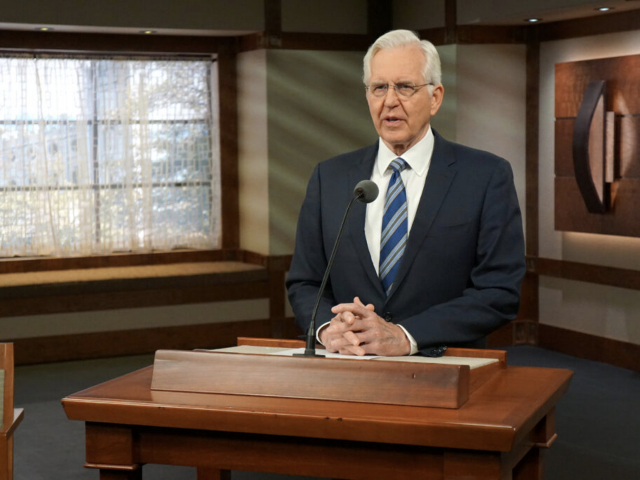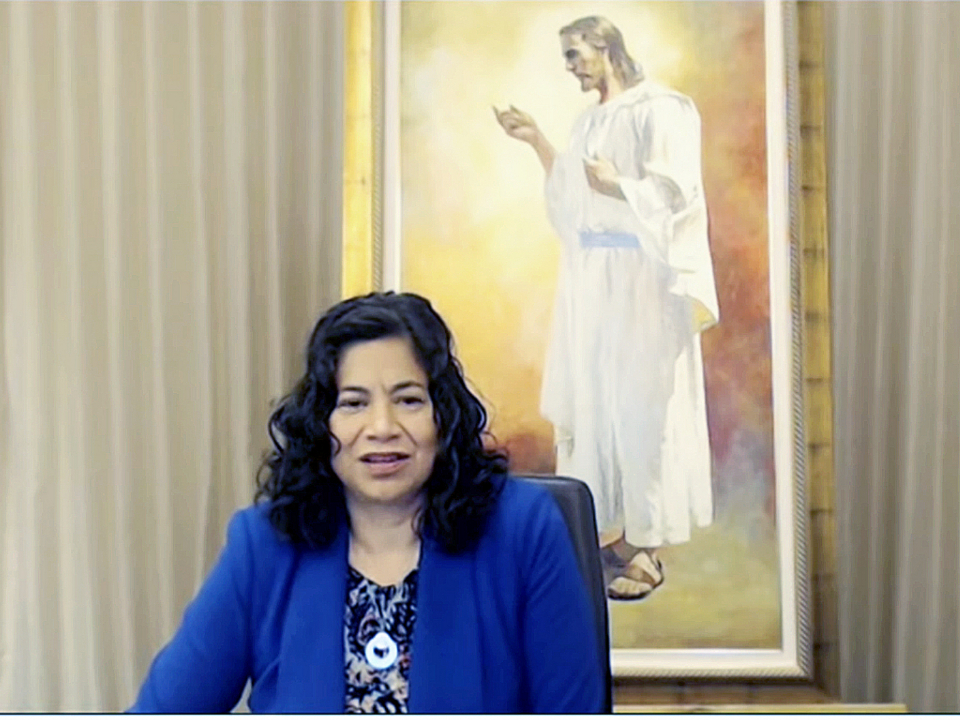
This story appears here courtesy of TheChurchNews.com. It is not for use by other media.
By Jon Ryan Jensen, Church News
Sister Reyna I. Aburto participated in a panel discussion about the social role of religion and faith communities on Friday, October 29.
While on assignment in Puerto Rico, Sister Aburto, second counselor in the Relief Society general presidency, participated via videoconference and shared personal experiences with the role religion has played in her life.
Most recently, in her role with the Relief Society, Sister Aburto has seen the efforts of members of the Church around the world.
“We have participated in projects that provide food, clean water, emergency response, immunization, maternal and neonatal care, refugee assistance, vision care, wheelchairs and community projects, in a sustainable way, both at the international and at the local level,” she said.
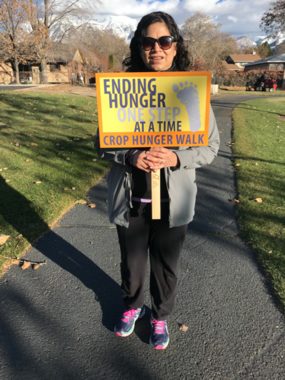
Walk for Hunger 7 Aburto
Reyna I. Aburto, a member of the Relief Society general presidency, holds up a sign to raise awareness for CROP Hunger Walks, community-based walks sponsored by volunteers that participate to fight against hunger around the globe, in November 2020 in Utah. The Relief Society is the Church’s organization for its six million female members ages 18 and over.2020 by Intellectual Reserve, Inc. All rights reserved.Those projects have included the individual work of many members of the Church and financial donations, as well.
Talking specifically about donations through Latter-day Saint Charities, Sister Aburto said that since its founding in 1985, “assistance equates to more than 2 billion U.S. dollars” in 195 countries and territories.
Other recent projects include efforts to help those affected by COVID-19, refugee assistance in 50 countries, and food donations in various countries.
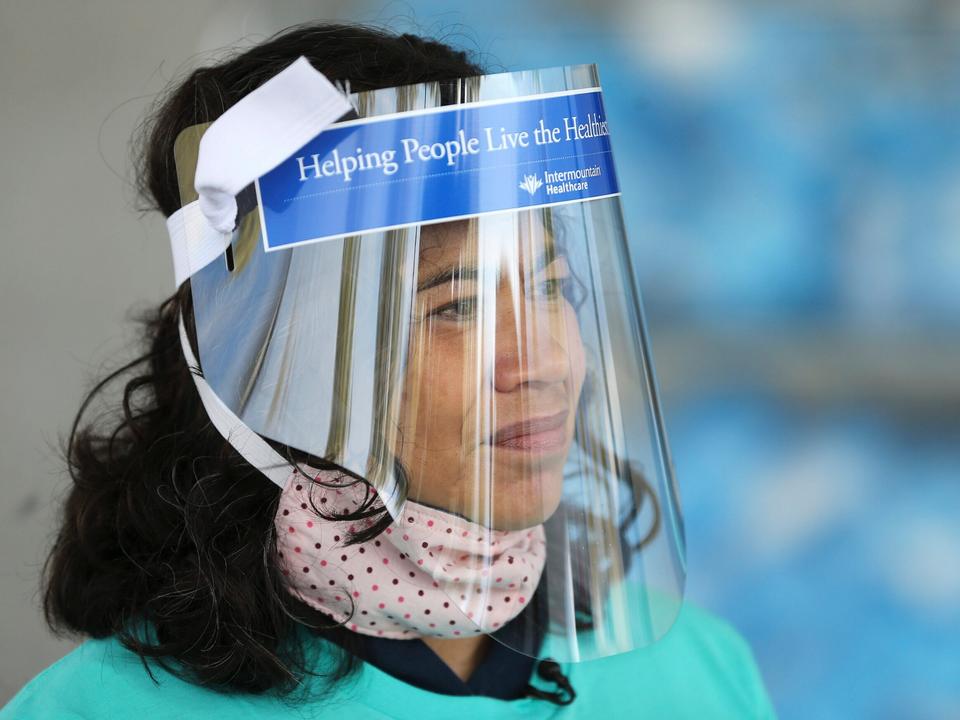
Reyna I. Aburto, COVID-19 face masks
Sister Reyna I. Aburto, second counselor in the Relief Society general presidency, helps to hand out face mask kits at the Deseret Industries thrift store in American Fork, Utah, on Tuesday, April 21, 2020. Some 10,000 volunteers will use the kits to make 1 million clinical masks to protect health care workers during the coronavirus pandemic. Photo by Jeffrey D. Allred, courtesy of Church News.Copyright 2020 Deseret News Publishing Company.“All of this is possible thanks to our close collaboration with governments and with religious and charitable organizations,” she said. “We constantly set aside our differences about religious doctrines and practices and unite our forces to serve the needy.”
Following Sister Aburto’s panel discussion as part of the first Forum on Religious Freedom in the Southern Cone with representatives from several South American countries, Elder D. Todd Christofferson of the Quorum of the Twelve Apostles gave the closing keynote address of the two-day event.
He spoke about the important role freedom of religion plays in the type of service Sister Aburto described.
“These acts of kindness and charity are an integral part of our faith,” he said. “Religious liberty allows us to serve in ways that are consistent with the faith that motivated us to serve in the first place.”
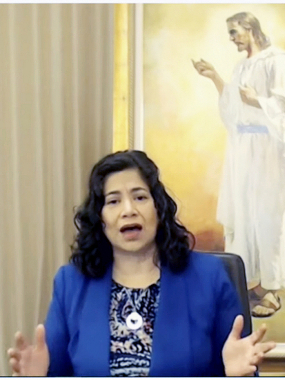
Aburto-Religious-Freedom
Sister Reyna I. Aburto, second counselor in the Relief Society general presidency, speaks via Zoom from Puerto Rico on Friday, October 29, 2021, during a panel discussion as part of the first Forum on Religious Freedom in the Southern Cone. Photo is a screenshot, courtesy of Church News.All rights reserved.The amount of time donated by Church members and other volunteers participating in humanitarian work organized by Latter-day Saint Charities is enormous, Sister Aburto said.
“Our projects are mainly done through millions of voluntary work hours given by hundreds of thousands of people, who can get to work immediately, when needed.”
Speaking of her own experience as a 9-year-old girl in Nicaragua, she said her family was helped by many individuals after an earthquake.
“During several months, we received help from different organizations, most of them religious, which allowed us to have a new beginning and to reach some stability,” she said.
The feeling she had after receiving help then, and in other times of her life, has moved her to help others overcome their hardships.
“I know firsthand the feeling of gratitude, hope and love that one feels when receiving help from a selfless source,” she said. “It is hard to put into words the feelings I have knowing that in some measure I am providing some help to people less fortunate than me and giving back some of the assistance that I have received.”
Those efforts aren’t done alone, she said in closing. When done as a group, they provide purpose.
“To belong to a community in which we try to help each other spiritually and temporally gives us a sense of identity and purpose that allows us to forget about ourselves in order to focus on the needs of others and on the common good.”
